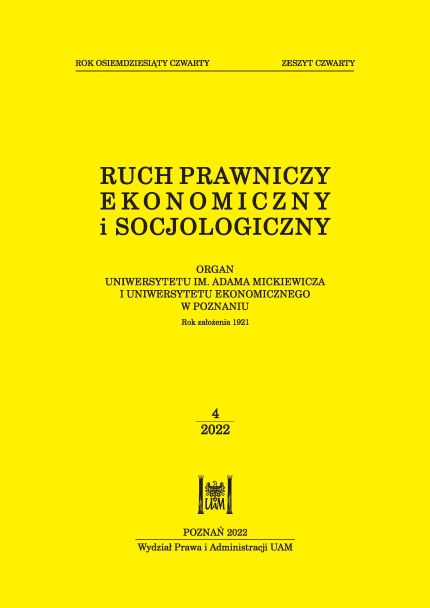Terroryzm żywnościowy oraz obrona żywności w ujęciu formalnoprawnym
Food terrorism and food defence in formal and legal terms
Author(s): Małgorzata Zdzisława WiśniewskaSubject(s): Law, Constitution, Jurisprudence, Agriculture, International Law, Law on Economics, EU-Legislation, Commercial Law, Administrative Law
Published by: Uniwersytet im. Adama Mickiewicza w Poznaniu
Keywords: terrorism; food defence; food safety; statutory law; private law
Summary/Abstract: Due to the role of food in human life and for the economies of the whole world, both food and the entire food chain are very vulnerable to terrorist attacks. Food terrorism is not a new phenomenon, and current experience confirms that it is still very dangerous. The aim of the article is to answer two research questions: (1) Does statutory law define the framework for protecting food against deliberate contamination and, if so, to what extent? (2) What role does private food law play in defending food against terrorism? As a result of the conducted analyses of law, including food law, and private food law, it was confirmed that in national and European food law there is no reference to food terrorism or food defence. The only regulations that exist concern the protection of the so-called critical infrastructure, such as those that ensure the provision of food and water supplies. The most developed law in the world in this respect is the American food law, including the so-called modernization act, which imposes an obligation on organizations to implement the HARPC system. Private food law plays a very important role in food defence against food terrorism, as well as voluntary – in terms of their implementation – risk assessment tools, such as the TACCP system, developed by various agencies and industry associations.
Journal: Ruch Prawniczy, Ekonomiczny i Socjologiczny
- Issue Year: 84/2022
- Issue No: 4
- Page Range: 101-119
- Page Count: 19
- Language: Polish

